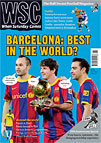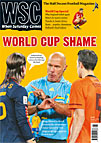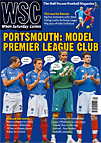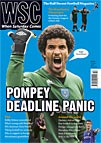 After José Mourinho and his Real Madrid side received hefty criticism upon their Champions League elimination at the hands of Barcelona, just how special is “The Special one?”
After José Mourinho and his Real Madrid side received hefty criticism upon their Champions League elimination at the hands of Barcelona, just how special is “The Special one?”
It has been a great month for conspiracy theorists. The death of Osama bin Laden has offered more questions than answers, the timing of the AV vote so soon after the Royal Wedding was viewed by some as a cunning Conservative ploy and José Mourinho, football’s chief polemicist, has been ruminating and ranting about the injustices of the world.



